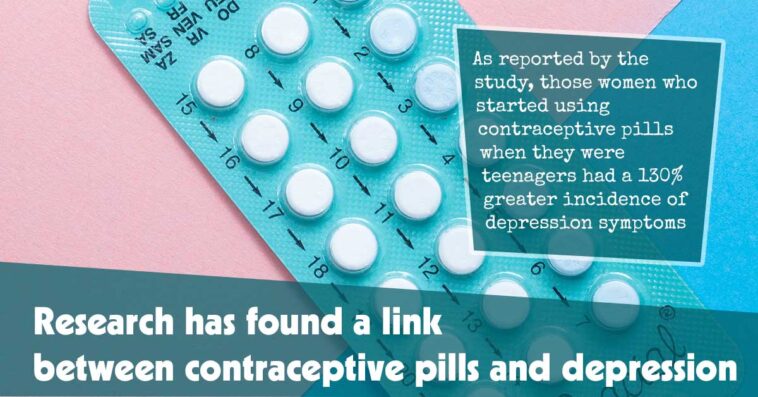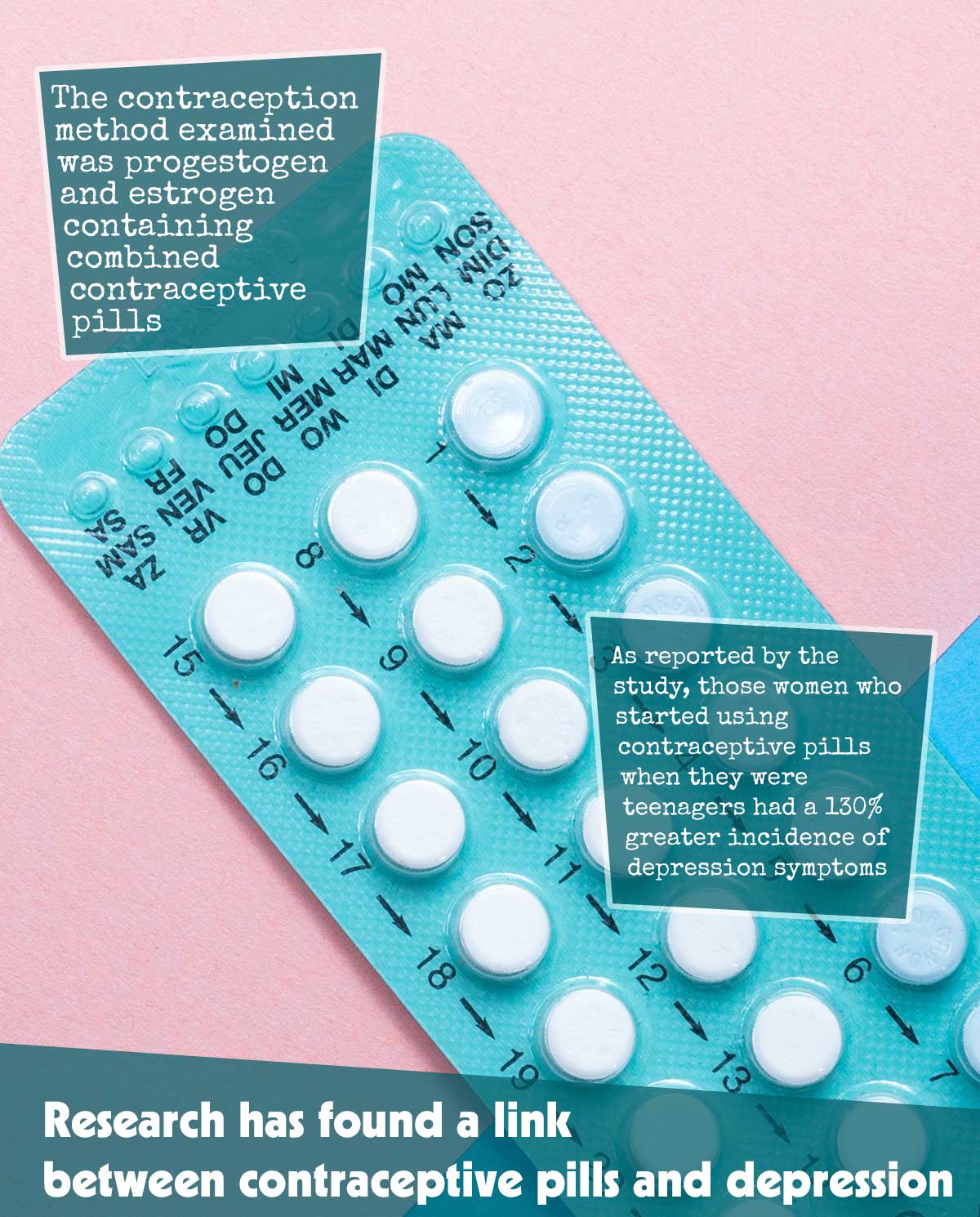From a global point of view, depression is the main cause of ill health and disability. Over 264 million individuals are impacted and at least 15% of all men and 25% of all women experience depression that will require treatment at some stage throughout their life.
The chance that contraceptive pills could have an adverse impact on mental health and even result in depression has been a topic of discussion for a while now. Even though many women decide to stop making use of contraceptive pills due to the impact on their mood, study results haven’t been clear-cut.
Over 250,000 women from UK Biobank were followed from birth to menopause for this study. Data were collected regarding contraceptive pill usage, the time at which women 1st received a depression diagnosis, and when they 1st experienced depression symptoms without being diagnosed.1✅ JOURNAL REFERENCE
DOI: 10.1017/S2045796023000525
The contraception method examined was progestogen and estrogen-containing combined contraceptive pills. Progestogen is a compound similar to the progesterone hormone which inhibits ovulation and also thickens the cervical mucus to stop sperms from getting into the uterus, while estrogen thins the uterine lining to impede a fertilized egg from implanting.
Even though contraception has numerous advantages for women, medical professionals, as well as individuals, should be informed regarding the side effects revealed in this and other research.
As reported by the study, those women who started using contraceptive pills when they were teenagers had a 130% greater incidence of depression symptoms, while the related increase in adult users was 92%.
The powerful impact that contraceptive pills have on teenagers could be attributed to puberty-related hormonal changes. Women who are in that age category can be more responsive to hormonal changes as well as other life experiences since they have already experienced significant hormonal changes.
The increase in depression incidence also diminished when the women carried on using contraceptive pills after the 1st 2 years. Teenagers using contraceptive pills however still experienced an increase in depression incidence even after they stopped making use of the pill, which wasn’t seen in adult users of contraceptive pills.
It’s important to emphasize that external hormones are tolerated by the majority of women well, without suffering from adverse mood effects, so combined contraceptive pills are still a great choice for a lot of women.
Contraceptive pills allow women to prevent unplanned pregnancies as well as illnesses that affect women, such as uterine and ovarian cancer. Some women could however have an increase in depression risk after starting to make use of contraceptive pills.
The study results indicate a need for greater awareness of potential associations between different body systems, which include the use of contraceptive pills and depression. The study concludes that it’s important for women who are thinking about making use of contraceptive pills to be informed of the potential depression risk as a side-effect of the medication.
Considering that the researchers only looked into combined contraceptive pills in this study, conclusions can’t be made regarding other contraceptive options, which include contraceptive patches, mini pills, contraceptive rods, vaginal rings, or hormonal spirals.




